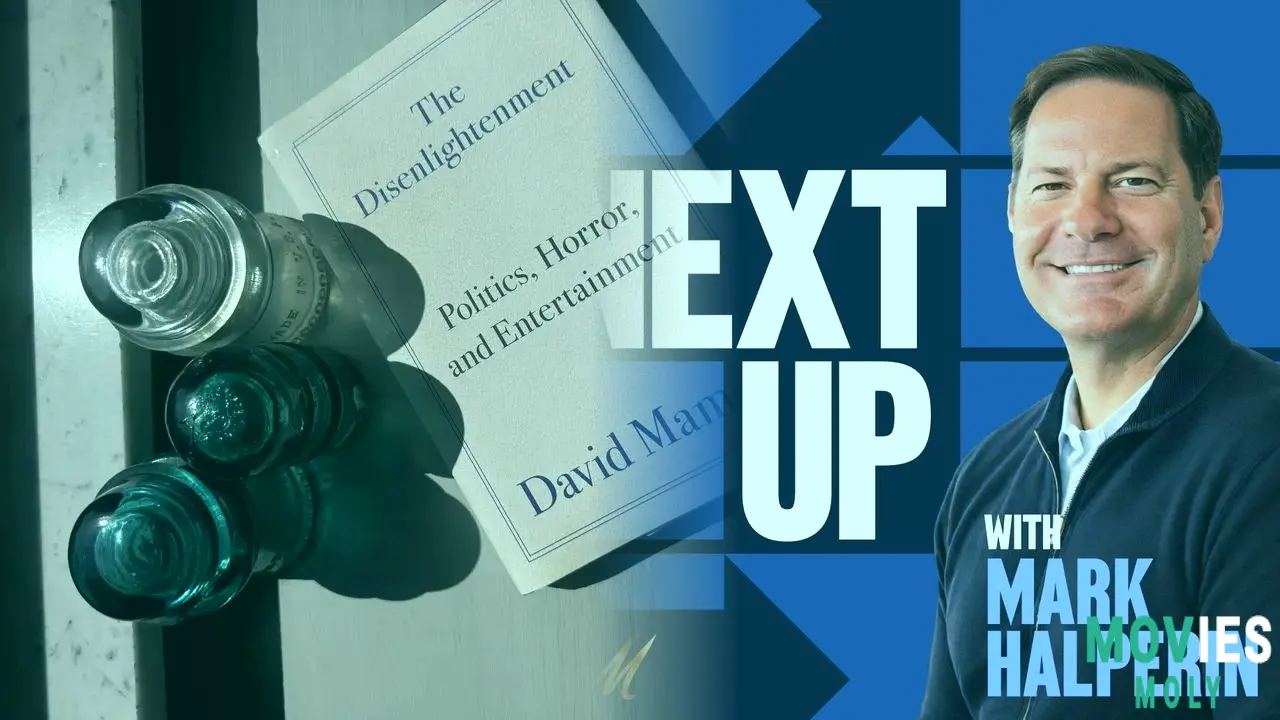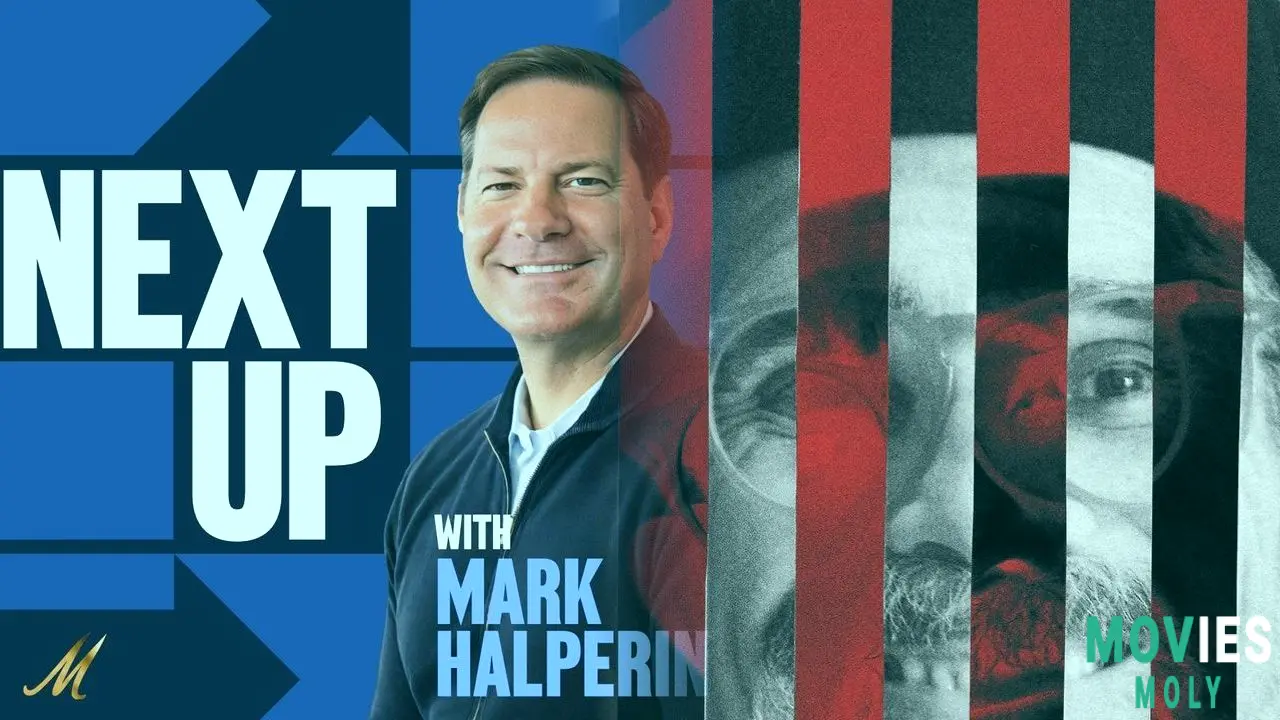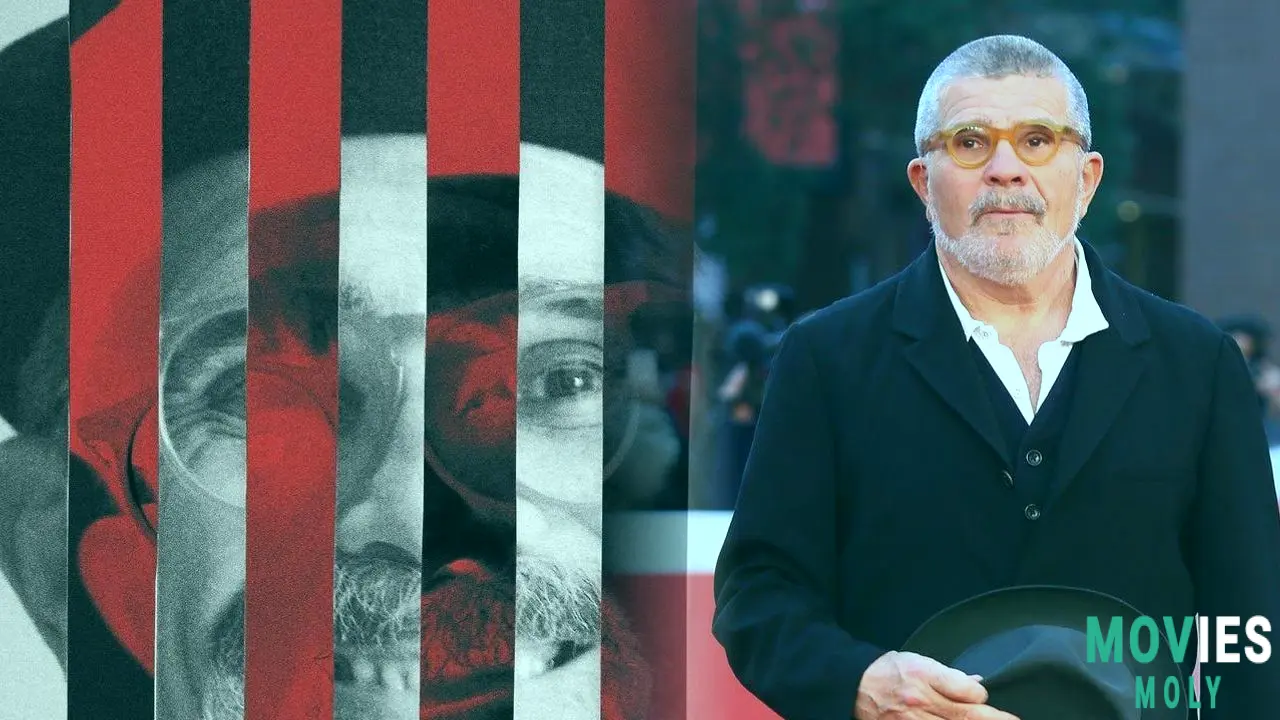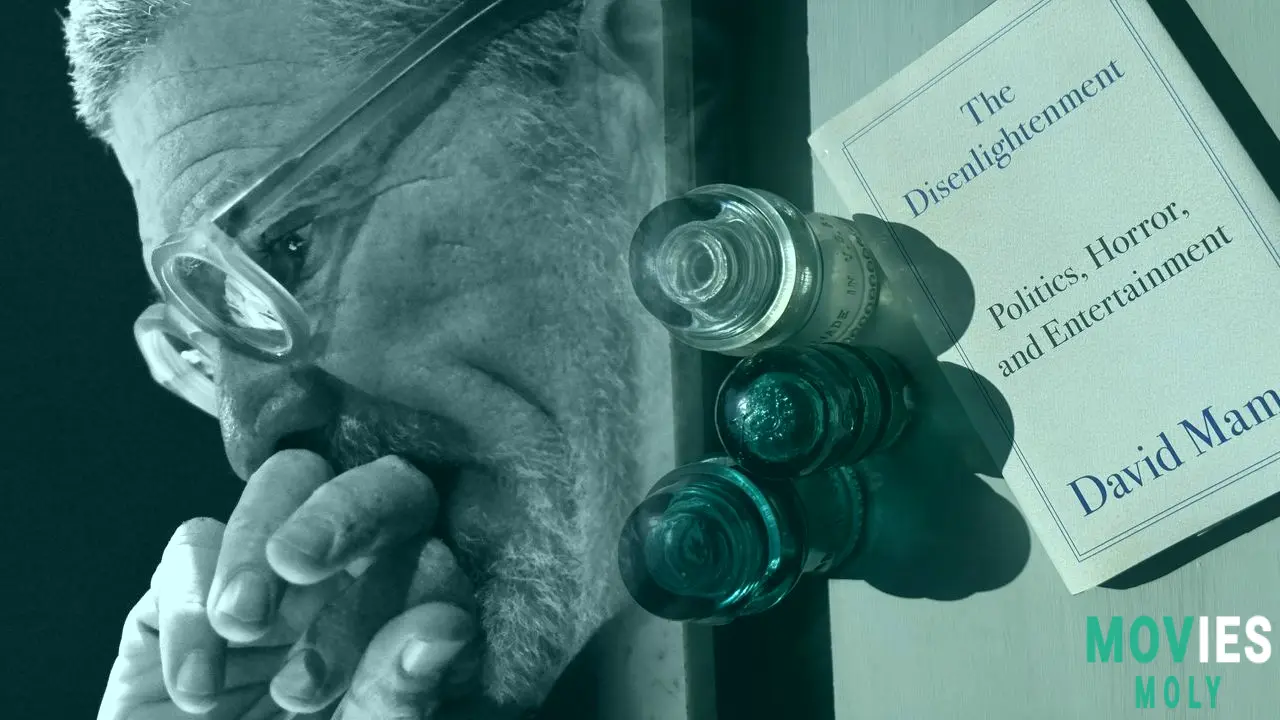David Mamet used to be, in my opinion, the voice of American drama. His plays struck you with a ferocity I hadn't felt before. They cut through the needless phrases and got right to the issue. His discourse represented how people actually communicate. It was frequently rude, furious, and occasionally quite humorous. He revolutionized the way authors thought about conversation. Without Mamet, many of today's snappy, quick-witted scripts would not exist. He gave raw energy to the stage and film. It felt as if he understood how people spoke when they were under pressure or trying to get something done. It was his gift.
Before becoming a well-known writer and Pulitzer Prize winner, Mamet labored in a variety of low-wage occupations during his 20s. He worked as a kitchen assistant at a summer camp and a maintenance technician in a truck manufacturing. He even worked in the Merchant Marine, performing boat maintenance. Mamet has stated that he understands what it is like to get your hands dirty in order to make a life. "Even right after I graduated from college, I was unemployed, lacked skills, and the degree was worthless," Mamet previously stated in an interview.
Beginning in the late 1970s, Mamet fully erupted on the American theater scene. He recreated drama using short, snappy dialogue that sounded like actual conversation. Flowery speeches were out. Quick, strong lines were in. Charming amateurs were out. Sweaty working-class men with their own ideas were up. He developed characters with gritty American ambition. Then he combined those voices in a rhythmic, fascinating manner. They were frequently filled with heated American language that felt so authentic. The theater community soon praised him.
David Mamet's Unforgettable Influence On The Stage And Silver ScreenLooking Back on the Plays and Films That Defined His Early Artistic Genius
Mamet won numerous prizes early in his career. He garnered two Tony nominations and several Drama Desk nominations. He received two New York Drama Critics Circle Awards. He won the Pulitzer Prize in 1984 for Glengarry Glen Ross. He received another Pulitzer Prize nomination a decade later for his powerful play The Cryptogram. He penned the humorous Speed-the-Plow. This play is one of the greatest Hollywood satires available. He even cast Madonna in the show's inaugural Broadway run in 1988. It felt like we were all living in David Mamet's world at the time. He exuded so much presence and force.
A decade after becoming a household figure in American theater, he took his talent to Hollywood. He wrote some excellent movie scripts. These include The Untouchables, The Verdict, and Wag the Dog. He continues to receive big award nominations for these films. He became known as America's keen voice. He wrote the iconic "Chicago way" scene from The Untouchables. Sean Connery won an Academy Award for his performance in that role in 1988. For me, however, Connery's character beaming and exclaiming "Oh, what the hell!" The sentence I recall from that film is, "You gotta die of something," as he rides a horse to halt an illegal booze shipment. That line has stayed with me for years.
Mamet's work for 1982's The Verdict resulted in one of Paul Newman's greatest performances. It is one of the greatest courtroom dramas of its era. In another year, Sidney Lumet, Mamet, and Newman would most likely have won Oscars. His writing was that brilliant. It made you feel the suspense and the stakes with each syllable. That is an uncommon skill in screenwriting.
The Recent Return of David Mamet's Masterpieces on Broadway Stages

Why His Older Plays Feel So Relevant In Today's Tumultuous World
It feels like we're back in a Mamet moment. Henry Johnson, his first film in more than a decade, was recently released. While it is worth watching, it is not among his greatest. The dialogue frequently felt detached. It alluded to events occurring off-screen. What could have been moving instead turned into trite sayings. They attempted to sound profound, but instead came across as ordinary prison survival advice. The film is based on Mamet's own play. It depicts the main character's transition from a white-collar lifestyle to jail brutality.
More crucially, Mamet's two best-known works have recently returned to Broadway. Seeing the Broadway production of American Buffalo in 2022 was an unforgettable event for me. Laurence Fishburne played Don, the owner of a pawn store. He portrayed Don as a combination of needs. Don wants his dignity restored. He wants to guide his assistant Bob. He wants to feel as if his life is moving forward. Before the play began, he sold some rare nickels for far less than their worth. He will stop at nothing to get them back. Then Sam Rockwell emerged as Teach. Teach is a wild scammer. He urges them to take from the guy with the nickels. He also yells the harsh phrases that my former high school students read aloud.
Rockwell went all-out on stage. He kicked over the beautifully arranged garbage. Other great performers, such as Al Pacino and Robert Duvall, have played Teach previously. Rockwell's Tony nomination indicates that his portrayal ranks among the best Mamet roles. When Fishburne said "Fing business..." at the close of Act I, I did something I never expected to do. When the lights went down for intermission, I didn't clap. I let out a wild cheer. It simply felt perfect.
Glengarry Glen Ross, Mamet's other famous play, is currently playing on Broadway. Ticket costs are extremely exorbitant. Many well-known performers appear in the film, including Bill Burr, Bob Odenkirk, and Kieran Culkin. This play might represent Mamet's harshest critique of American culture. It is worth noting that the 1983 play and its 1992 film, which featured Mamet's iconic "Coffee is for Closers" remark, were released around the same time as Brett Easton Ellis' American Psycho. But, whereas that novel was for rich college students, Glengarry Glen Ross was for those who had to drop out of community college but still believed they could scam their way into a mid-size automobile and some self-respect. The drama does not truly belong in the Reagan period. Ronald Reagan represents the Glengarry Glen Ross era. The themes of hardship and despair continue to resonate today.
The Controversial Side of David Mamet: Why His Views Divide Opinions

Navigating His Political Shift and Its Impact on His Public Image Today
So, why has David Mamet mostly disappeared from public discourse? We live in an era of massive income inequality, male rage, scammers in authority, and civic disarray. No other American writer I know portrays the present moment as well as he does. Kieran Culkin's portrayal of Ricky Roma in Glengarry floats and speculates like a modern-day crypto figure. Why does the newfound interest in Mamet's ideas feel largely ignored? I guess it's because David Mamet can't help himself.
Following 9/11, he, like many others, shifted strongly to the right. He discussed it with everybody who would listen. During the Iraq War, he emphasized these points of view. Perhaps his terror evolved into something else for a while. Mamet persisted, producing a self-important essay and expanding into political works such as The Secret Knowledge: On the Dismantling of American Culture. Even those who agreed with some of his political views believed this book was bad. Mamet's political ideals read as powerful claims. They try to seem smart, but they frequently express extremely typical right-wing beliefs. Things like government are evil, and traditional religion is excellent.
His forceful, often exclusionary writings continued. He has questioned the 2020 election results. In one weird moment, he said that instructors are "inclined" to pedophilia. As a teacher myself, and with many teachers in my family, I believe this is extremely foolish. It's strange to make one of America's most maligned professions your enemy. But Mamet seemed to need someone to dispute with. He does not keep back his opinions.
I've read most of his political writings published after 2000. As much as they make me feel horrible, they follow a pattern. Writers who become as prominent as Mamet frequently veer to the right. If you believe that your talent and hard effort are the sole reasons you are successful, everyone else who is not is a failure. You are not to blame if your work loses popularity. It is liberal CEOs that create lousy films. Many artists throughout history have become intrigued by raw power. If this makes you despise Mamet, consider that many great writers in the past held even more controversial beliefs. Mamet's flaws are minor when compared to what other great writers have said.
My Personal Connection To David Mamet's Words And Their Lasting Impact

Why His Dialogue Sticks With Me and Shapes How I See the World
I need Mamet's work as much as I do the Book of Ecclesiastes. His writing influences how I utilize words. Like Mamet, I grew up in a household where foul language and scathing comments of stupid were encouraged. Other families handed along soup recipes. I was taught the nuanced nuances between various swear words. That was my education.
I had a horrible lisp when I was little. It was a significant problem for a talkative only child who enjoyed discussing athletes and dinosaurs. Saying some names was torture for me. That sense of embarrassment drove me to speech therapy. It also gave me a strong desire to speak confidently, as if I would no longer be intimidated. When the 1997 film The Edge, with a script by David Mamet, became popular among the students in my middle school, I would practice lines in front of the mirror at home. For example, "Today, I'm gonna kill the motherfer!" or "What one man can do, another can do!" I believed that if I could keep up with Mamet's language, I could control my own voice. I could develop myself into a stronger individual.
A year later, his script for Ronin (1998), which he penned under a different name, served as another practice book for me. Robert DeNiro's character repeatedly used the word "boathouse" when grilling Sean Bean about his spy credentials. Those ending "s" sounds were hard for me with my lisp. As I got older, I joined my parents in appreciating Mamet’s ability to speak hard truths. One of the best laughs my mother and I shared was when Jeremy Piven left a revival of Speed-the-Plow. He claimed mercury poisoning from eating too much sushi. Mamet famously said that Piven was "leaving show business to pursue a career as a thermometer."
I got even older and heard Mamet everywhere in the art of my generation. To me Aaron Sorkin simply made Mamet softer. He took the anger and turned it into a weak pride about where someone went to college. Mamet’s dialogue wears brass knuckles. Sorkin’s wears Mickey Mouse gloves. Mamet’s Sexual Perversity in Chicago sits over Todd Phillips’s dark, sexually scattered world of male characters. Vince Vaughn and Bradley Cooper are better looking. But they have the same agitated, pushing style of Mamet’s lost men. Lena Dunham’s restless girls in Girls, including Mamet’s daughter Zosia, speak with the rhythm of Mamet characters. They misunderstand themselves as they misunderstand everyone else. This shows his influence on modern storytelling.
Mamet does not think much of teachers, but mentors fill his works. They are a common character for him. When Mamet lets his guard down, he truly likes them. His 2023 book Everywhere an Oink Oink is a fairly fun memoir about his career in Hollywood. It is warm and sharp. It has very few negative comments about the social safety net. It almost feels like the work of a Mamet from a different time. The most telling parts of the book show how much he wanted models and mentors. He wrote letters to Stanley Kubrick asking to meet him. He shared how he learned Brazilian Jiu-jitsu. He loved seeing real wrestlers in old movies. He remembered Henry Fonda giving him a signed photo. It is clear that Mamet values guidance from others.
Academics, another group Mamet does not respect, have always understood him. The best articles I have read about Mamet have titles like "Dominance and Anguish: The Teacher-Student Relationship in the Plays of David Mamet." The book David Mamet and American Macho is the best study of his work I have found. It is very clear. The men in Mamet’s world often pay a price for their showing off. Whether at the end of Glengarry or the end of 2001’s Heist, Mamet’s characters end up alone. This is a recurring theme in his work. He shows the cost of their aggressive behavior.
The young are never wrong about poetry. They are usually right about drama too. When my students finished American Buffalo, they said they liked it because of the hidden sadness. I thought they would praise the sharp, honest dialogue. I was wrong. They found the heartbreak and trapped feelings in the play. Young people can be influenced by bad advice. Life plans can go wrong. Powerless people fight among themselves because facing real power is scary. And yes, they do it with rough but wonderful language. The dialogue also dances around the real problem. They saw how addiction controlled Bobby’s life. They saw their parents in the tired Don. Even violent Teach acted from some hidden pain. They were all very sad. That made them truly real to those teenagers. Their understanding of American Buffalo changed how I saw it too. It showed me the deeper emotional layers.
As someone who loves Mamet’s work, has taught it, and probably still needs it, I feel I have the right to look into this writer. He is so focused on winners and losers. Maybe what is at the heart of David Mamet is the old saying about fighting sports. Hurt people hurt people. His work explores that idea in ways few others have. It is why he remains such a powerful, if at times frustrating, voice.




